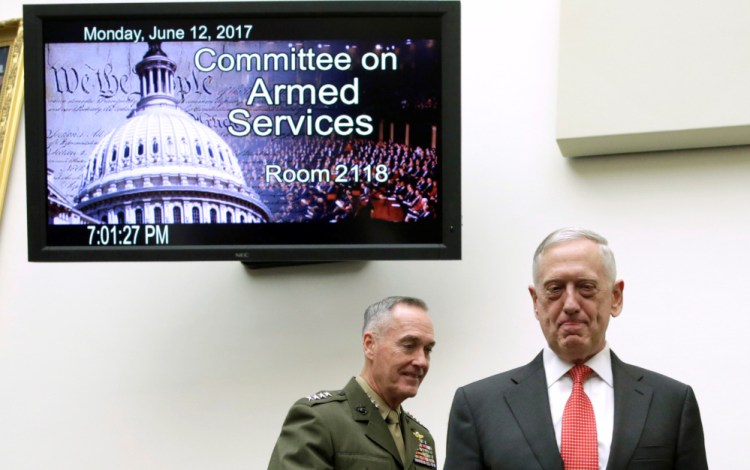BRUNSWICK — We live in a system of nation-states in which each nation works for its own self-interest and struggles for economic and political power. Our current foreign policy accepts the reality of this struggle and has the objective of winning the competition. Its strategy focuses on the use of military force and alliances. Hence, we have developed over 800 military bases across the world, spending billions more on our military than our rivals do, and over 12 times more on defense than on all of our diplomatic, humanitarian and developmental efforts combined.
Our attempt to control events by military means has involved us in an unending series of wars that have cost over $4 trillion, detracted funds from local communities and contributed to an enormous debt, environmental destruction and the militarization of our police. It is not winning wars or defeating terrorism, and it is not coping with global warming or the danger of nuclear war. Rather, it is contributing to the flow of refugees, to the deterioration of communities here and abroad and to a sense of meaninglessness and despair. We need a different foreign policy.
NEW POLICY FOR CHANGED OBJECTIVE
An alternative policy could have a different objective. Rather than trying to win an international competition, it could work with other nations to create a situation that would support local communities and not simply multinational corporations. Rather than a strategy of domination, it could have a strategy of fostering a system of cooperation and the development of international law. Rather than attempting to win by building military bases and sending aid to corrupt regimes, it could resolve conflicts with negotiations that coordinate community development and protection.
Some may argue that such a policy is hopelessly naïve. Since people are fundamentally selfish and much more interested in their own nation than in the welfare of others, they think it unrealistic to have a foreign policy with a basically cooperative objective that presumes a possible global community. They neglect the fact that most people have some caring for those they know and a desire for some justice for all persons.
A recent study gave people eight different themes that might be used to celebrate global community. In 16 different languages, over 2,000 people from 25 different nations were asked what they would like to celebrate. The most desired item was “the courage to build justice for the children who will inherit this world.” Although such a desire may be far weaker than more selfish longings, that it was chosen by 92 percent of respondents clearly indicates the existence of a global norm and a nascent global community.
ALTERNATIVES TO MILITARY
It may be argued that a basically cooperative strategy is unrealistic because the international situation requires the use of military force to support good sides in civil wars, deal with unscrupulous dictators, compete for resources and defeat terrorism. Such an argument ignores the existence of many alternative methods:
• In carefully designed problem-solving workshops, mediators are able to encourage mid-range leaders from different sides to set aside prejudices and jointly address the problems that must be resolved.
• Unscrupulous dictators may be induced to accept a shared sovereignty that allows the dictator to maintain control but places profits from investment in an escrow account that ensures that at least half the proceeds are invested in the education and infrastructure needed by local communities.
• Conflicts with our rivals can be addressed with transformative negotiation tactics that can establish win-win business enterprises that share the resources.
• Terrorism can be seen as a global public health problem and combated by using an epidemiological model that fosters the global cooperation that is needed.
A policy using such methods would not eliminate the need for our military. A military presence commands respect and force is sometimes needed. However, rather than having arms salesmen in embassies, we could increase the number of Foreign Service officers trained in conflict management. Aid workers could help implement a new Marshall Plan for development in the Middle East and Africa. Peace Corps volunteers and people-to-people programs could help link our communities to those abroad. A recent paper by Sen. Chris Murphy of Connecticut, “Rethinking the Battlefield,” has shown that such measures could be implemented for only 5 percent of what we currently spend on the military.
We need Sen. Susan Collins and Sen. Angus King to support a bipartisan foreign policy that would spend less on the Pentagon and more on jobs that would help our local communities and methods that would help rather than hurt communities abroad.
Send questions/comments to the editors.


